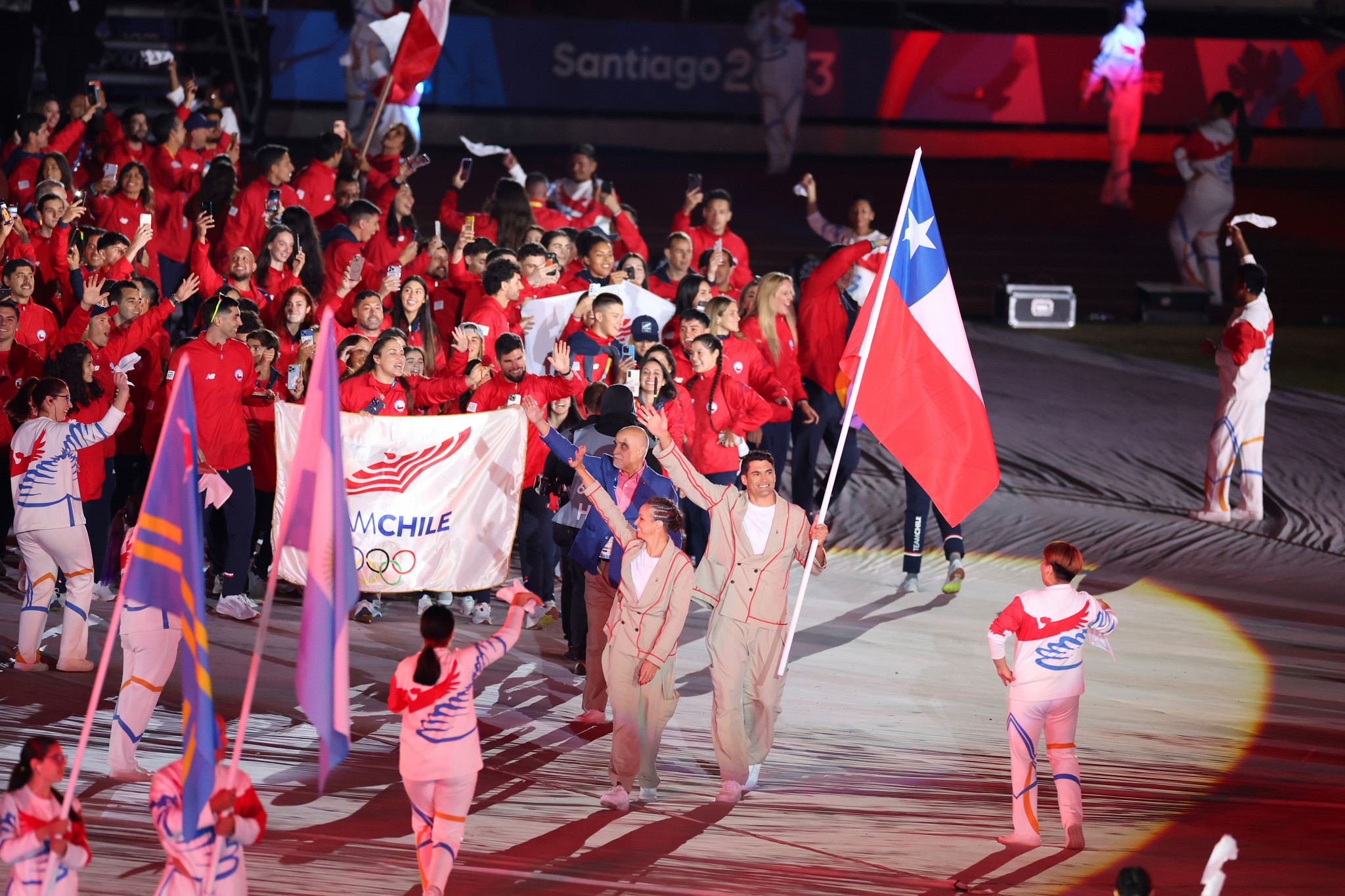Chile’s The National Stadium, where the Pan American Games’ opening ceremony in Santiago unfolded on Friday, October 20, 2023, is a powerful symbol of national pride for many.
Yet, there is no denying the grim shadows that lurk in its history, casting a long and painful shadow over the celebratory atmosphere. Half a century ago, an estimated 20,000 to 40,000 individuals endured the haunting experience of being held captive within the stadium’s confines. This venue, once a site of jubilation and sportsmanship, had been transformed into a chamber of terror and cruelty, where torture and extrajudicial killings unfolded.
In the wake of these dark times, Chile now stands on the brink of hosting the Pan American Games, a momentous event that marks the largest multi-sport gathering in the Americas. Chile’s inaugural hosting coincides with the poignant 50th anniversary of the harrowing crimes committed within the very walls of the National Stadium. This milestone invites reflection on the nation’s journey, serving as a testament to the power of resilience and transformation.
Significant renovations and the construction of six new venues, at an investment of $507 million, have revitalized the National Stadium and its surroundings for the Pan American Games. These efforts symbolize Chile’s commitment to embracing a brighter, more inclusive future while honoring its past.
Before the horrors of 1973, this stadium bore witness to iconic sporting moments. The exhilarating 1962 World Cup final saw Brazil triumph over Czechoslovakia with a 3-1 victory, forever etching that event into history. In 2015, the host nation secured its first major soccer title by defeating Argentina in the Copa America final, ushering in a new era of football glory.
However, between September and October of that fateful year in 1973, the National Stadium became the epicenter of violence, an instrument of repression in the hands of General Augusto Pinochet’s regime, which lasted until 1990. The coup that ousted President Salvador Allende irrevocably altered the stadium’s course and the trajectory of the nation itself. Today, seven memorials dot the stadium’s vicinity, serving as poignant reminders of the past. Among them, a sign at the entrance of the compound speaks volumes: “A people without memory is a people without future.”
The recognition of this painful history is reflected in recent changes. The velodrome, part of the stadium complex, has been renamed after Sergio Tormen, a cyclist who was tragically arrested by the military and subsequently disappeared in July 1974. Tormen’s story resonates with countless others who endured the trauma of arbitrary arrests and persecution.
In a poignant moment of healing, a group of former inmates gathered at the stadium, revisiting the tense times when they were summoned to face authorities in the velodrome. Jaime Zorondo, a 78-year-old salesman who was present at the stadium in September 1973, recalled those haunting days. “They gave the name on the loudspeakers, you had to walk, and then the military men took you,” he said. “And then you didn’t know where they went. The women went with their fists up high… They suffered much more than us; raping was a daily ordeal.”
Zorondo also remembered the meager sustenance they subsisted on, “We ate orange peelings, eggs that had been stepped on, anything we could see,” he said.
Sergio Muñoz, who was 25 years old when taken to the stadium by the dictatorship, shared the horror of watching a hooded figure move through the inmates, identifying adversaries of the new regime. “There was a snitch who wore a black hood and identified others. That person was taken out, interrogated, and did not come back,” said Muñoz, now a history teacher.
The Chilean commission of truth, which investigated the crimes of the dictatorship, uncovered accounts of pregnant women who lost their babies due to torture and sexual abuse at the National Stadium.
The pain and suffering were not limited to Chileans alone. Brazilian politician José Serra described his ordeal at the stadium as the most trying moment of his life. The 81-year-old two-time presidential candidate and former Sao Paulo governor was one of 300 foreigners who were brought to the stadium by military agents. Serra’s arrest in October 1973, as he was about to leave the country after eight years of eluding Brazil’s military dictatorship, left an indelible mark. A professor at a Santiago university, he was released under the condition he returned the next day, which he never did. Instead, he sought refuge at the Italian embassy for eight months. “I thought they were going to kill me as I walked away, as if I were a fugitive,” Serra recounted. “Going back there would be suicide.”
Despite its grim past, the Pan American Games represent an opportunity for Chile to heal, learn, and progress. These sporting events are poised to uplift the nation, transcending political divisions and uniting its people. “History is built with these testimonies,” noted Jaime Zorondo, a former inmate, “so the same never again happens in Chile.” The Pan American Games, through their spirit of unity and competition, provide a platform to honor the past, celebrate the present, and look forward to a brighter, more inclusive future for all Chileans.
(Source: Associated Press | Inside the Games)









